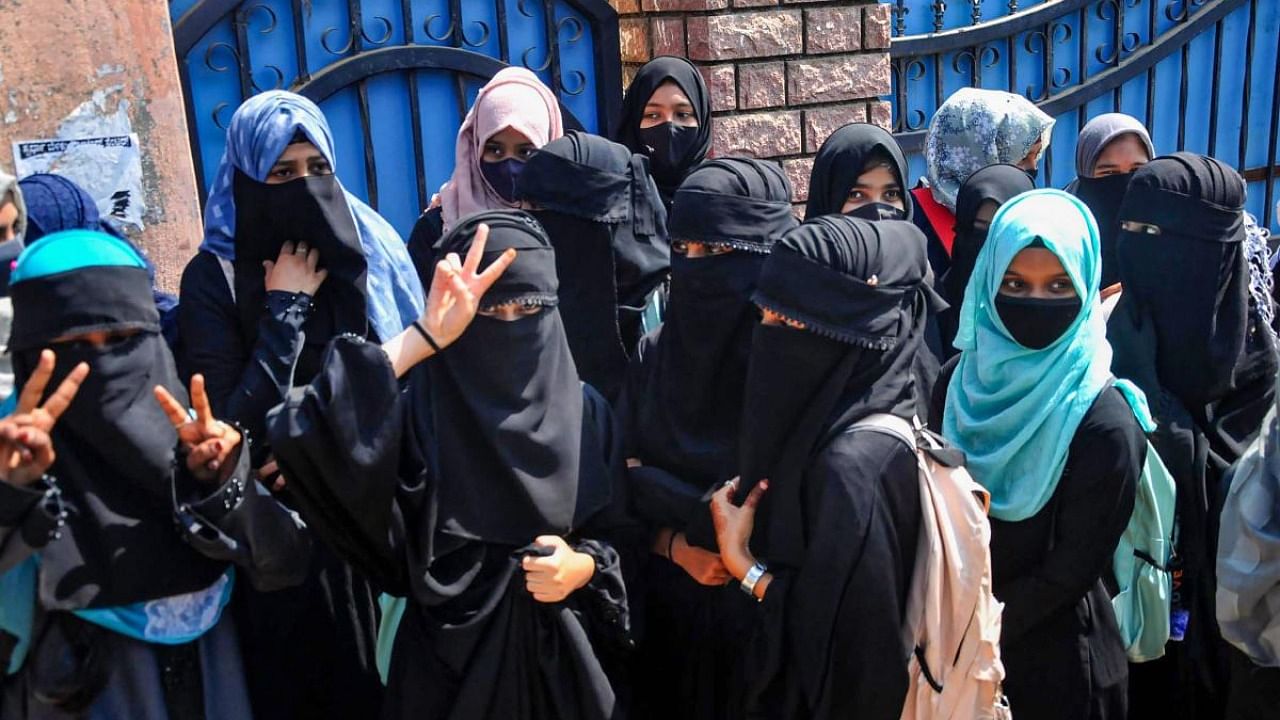
The Karnataka High Court has reserved its judgment in a batch of petitions over the hijab controversy. A three-judge full bench comprising Chief Justice Ritu Raj Awasthi, Justice Krishna S Dixit and Justice J M Khazi concluded the hearing in a batch of petitions on Friday.
The bench has primarily heard eight petitions on the hijab controversy over a period of the last 11 days.
Meanwhile, an advocate also requested the court to suggest mediation on the subject rather than getting into the constitutional aspect of the essential religious practice.
“Kindly submit your written submissions. We have reserved the judgment. If mediation is required we will mention that,” the bench observed. As regards Interlocutory Applications (IA) moved by various individuals/organisations in different petitions, the bench said that they can submit written submissions. The bench had told earlier that it will not give audience to the interveners, but will allow them to file written submissions.
Earlier, senior advocate Ravivarma Kumar made his rebuttal argument on the submission made by senior counsel for the College Development Committee (CDC) in Udupi. Kumar said a look at the composition of the committee would make it clear that it is an absolute power of the MLA. He said of the 12 members, 11 are nominees of the MLA who has absolute power to administer the college. Ravivarma Kumar said the principal of the college, who is the member-secretary of the CDC, only implements the decision of the
MLA.
“There is absolutely no accountability for the MLA who acts as a monarch of the college. Can the DDPI, principal do their job with MLA being the chairman of the CDC deciding everything? It is the MLA who decides the scheme of things. Supposing there is a misuse of funds. Who should hold the committee responsible and against whom there should be an enquiry?” he said.
So far...
Two sets of petitions have been filed before the High Court. The first petition by students in Udupi Government College for Girls seeking action against the school management, permission to wear hijab and praying for a declaration that hijab is an essential religious practise under Article 25 of the constitution. The second set of petitions challenged the Government Order dated February 5, 2022.
The state government contended that wearing of hijab is not an essential religious practice. The state also maintained its order dated February 5, 2022, does not interdict with the rights of the petitioners.
On February 10, the full bench passed an interim order saying that pending consideration of these petitions, all students regardless of their religion or faith are restrained from wearing saffron shawls, scarves, hijab, religious flags or the likes within the classroom, until further orders.
Watch the latest DH Videos here: